Home> Company News> Understanding How Pressure Compensators Work and Their Impact on System Performance
- AddressNo.9088 SHAHEXI ROAD, NANSHAN DISTRICT,SHENZHEN,CHINA
- Factory AddressNo.9088 SHAHEXI ROAD, NANSHAN DISTRICT,SHENZHEN,CHINA
- Worktime9:00-18:00
- Phone(Working Time)0531-85064681
- Phone(Nonworking Time)0531-85064681
- Fax0531-85064681
Understanding How Pressure Compensators Work and Their Impact on System Performance
NOVEMBER 02, 2022In hydraulic systems, pressure compensators play an important role in maintaining constant pressure and flow rate. These devices are designed to regulate fluid flow and pressure by adjusting the size of an orifice in response to changes in demand. Pressure compensators are critical for efficient system performance and preventing damage to equipment.
Pressure compensators have a long history of use in hydraulic systems. Over time, the design and functionality of these devices have evolved to meet the changing needs of various industries. Today, pressure compensators are widely used in a variety of applications, from construction and mining to agriculture and manufacturing. In this article, we will explore the basics of pressure compensators, how they work, and their impact on hydraulic systems. We will also discuss maintenance and troubleshooting, as well as the future of pressure compensators in hydraulic systems.
How Pressure Compensators Work
Pressure compensators are devices that regulate the pressure of hydraulic systems by adjusting the flow of hydraulic fluid. There are two main types of pressure compensators: fixed and variable.
Fixed pressure compensators maintain a constant pressure in the hydraulic system regardless of changes in flow rate or load demand. They work by diverting excess fluid flow back to the reservoir, ensuring a consistent flow rate and pressure.
Variable pressure compensators, on the other hand, adjust the pressure in the system based on changes in flow rate or load demand. They use a feedback mechanism to maintain a set pressure level by adjusting the flow rate of the hydraulic fluid. As the load demand changes, the compensator adjusts the flow rate to ensure that the pressure remains constant.
Pressure compensators are different from other flow control devices, such as flow control valves or pressure relief valves. While flow control valves regulate the flow rate of hydraulic fluid, pressure compensators regulate the pressure of the system. Pressure relief valves, on the other hand, release excess pressure from the system to prevent damage or failure.
Overall, pressure compensators play a critical role in maintaining the proper functioning of hydraulic systems. By regulating pressure and flow rate, they help to ensure optimal system performance and prevent damage or failure.
Impact on System Performance
Pressure compensators play a critical role in the overall performance of hydraulic systems. The primary function of a pressure compensator is to maintain a constant pressure in the system, regardless of changes in flow or load. This ensures that the system operates efficiently and effectively, with consistent performance over time.
When pressure is not regulated properly, it can have a significant impact on the performance of the hydraulic system. For example, if the pressure is too high, it can cause excessive wear and tear on the system components, reducing the overall lifespan of the equipment. On the other hand, if the pressure is too low, it can lead to sluggish system performance and decreased efficiency.
Proper calibration of pressure compensators is essential to ensure that the hydraulic system operates at optimal levels. This involves adjusting the compensator settings to match the specific flow and load requirements of the system. When calibrated correctly, pressure compensators can significantly improve system performance, providing reliable and efficient operation for a wide range of applications.
In addition to proper calibration, there are other ways to optimize system performance with pressure compensators. For example, using high-quality components and regularly maintaining the system can help to ensure that the pressure compensator and other components operate effectively over the long term. Additionally, it's important to monitor the system regularly to detect any issues early and prevent them from causing damage to the equipment or affecting system performance.
Maintenance and Troubleshooting
Proper maintenance and regular inspections are crucial for the optimal functioning of pressure compensators. Neglecting maintenance can lead to various issues such as leaks, inaccurate pressure control, and reduced system efficiency. It is important to follow manufacturer guidelines for maintenance and replacement schedules.
One of the most common issues with pressure compensators is oil contamination. Contaminants such as dirt, debris, and moisture can accumulate in the hydraulic fluid and cause damage to the system. Regular fluid analysis and filter replacement can help prevent this issue.
Another issue that can arise with pressure compensators is wear and tear on internal components. Over time, the piston, springs, and other parts can become worn or damaged, leading to inaccurate pressure control. Regular inspection and replacement of worn parts can prevent this issue and ensure proper functioning of the pressure compensator.
Troubleshooting pressure compensator issues requires a systematic approach to isolate the cause of the problem. A common issue is improper pressure control, which can be caused by a number of factors such as worn parts, dirty oil, or incorrect calibration. A thorough inspection of the system and pressure compensator can help identify the root cause of the issue and facilitate the necessary repairs.
It is important to note that pressure compensators are safety-critical components in hydraulic systems, and any issues should be addressed promptly to avoid system failure and potential safety hazards. Regular maintenance and inspections can help prevent issues and ensure proper system performance.
Applications of Pressure Compensators
Pressure compensators are widely used in hydraulic systems for a variety of applications, from heavy machinery to precision manufacturing. Here are some common applications of pressure compensators:
Construction and Mining Equipment
Construction and mining equipment often use hydraulic systems to power and control various operations, such as digging, lifting, and moving heavy loads. Pressure compensators help regulate the flow of hydraulic fluid to maintain consistent pressure and prevent damage to the equipment. They are commonly used in excavators, bulldozers, cranes, and other heavy machinery.
Machine Tools
Precision machine tools, such as lathes, mills, and grinders, require precise and consistent control of hydraulic fluid to ensure accuracy and repeatability. Pressure compensators help maintain constant pressure, which is crucial for achieving consistent results in machining operations.
Agricultural Equipment
Hydraulic systems are widely used in agricultural equipment, such as tractors and combines, to power and control various operations, such as planting, harvesting, and irrigation. Pressure compensators help maintain consistent pressure in the hydraulic system, which is crucial for efficient and effective operation of the equipment.
Aerospace
Aerospace applications require precise and reliable control of hydraulic systems to ensure the safety and reliability of aircraft. Pressure compensators are used to maintain consistent pressure in hydraulic systems for various aircraft components, such as landing gear, flaps, and brakes.
Marine
Marine applications require hydraulic systems for various functions, such as steering, winches, and cranes. Pressure compensators are used to regulate the flow of hydraulic fluid and maintain consistent pressure to ensure efficient and safe operation of marine equipment.
Automotive
Automotive applications require precise and consistent control of hydraulic fluid for various functions, such as power steering and braking systems. Pressure compensators are used to maintain constant pressure and ensure reliable operation of these systems.
Medical Equipment
Medical equipment, such as hospital beds and surgical tables, often use hydraulic systems for height adjustment and other functions. Pressure compensators help regulate the flow of hydraulic fluid and maintain consistent pressure to ensure precise and reliable operation of medical equipment.
Overall, pressure compensators play a critical role in ensuring the efficiency, safety, and reliability of hydraulic systems in various industries and applications.
Future of Pressure Compensators
The future of pressure compensators looks promising as advancements in technology continue to improve their performance and expand their applications. One such development is the use of electronic pressure compensators, which offer greater precision and control over hydraulic systems. These electronic compensators utilize sensors and microprocessors to constantly monitor system conditions and adjust pressure accordingly, resulting in improved efficiency and reduced energy consumption.
Another emerging trend in pressure compensator technology is the use of predictive maintenance techniques. By using data analytics and machine learning algorithms, pressure compensator manufacturers are able to predict when a unit will require maintenance or replacement, allowing for proactive and preventative maintenance practices that can reduce downtime and extend the lifespan of the equipment.
Furthermore, there is a growing demand for pressure compensators that can handle higher pressures and flow rates in order to accommodate larger and more complex hydraulic systems. To meet this demand, manufacturers are developing pressure compensators with higher flow capacities and more robust construction materials.
In addition to these advancements in technology, pressure compensators are also becoming more integrated with other components of hydraulic systems. For example, some manufacturers are developing pressure compensators with built-in filters and valves, streamlining the hydraulic system and reducing the need for additional components.
Overall, the future of pressure compensators is one of continued innovation and expansion. As hydraulic systems become more advanced and complex, the need for precise and reliable pressure control will only increase, and pressure compensators will play an increasingly vital role in meeting these demands.
Pressure compensators are crucial components in hydraulic systems, providing precise control over fluid pressure and flow. As technology advances and demands for hydraulic systems increase, the future of pressure compensators is promising.
One area of potential improvement is in the development of more efficient and effective pressure compensator designs. New materials and manufacturing processes can increase the durability and longevity of pressure compensators, leading to more reliable and cost-effective hydraulic systems.
Additionally, there may be opportunities for pressure compensators to be integrated with other advanced technologies, such as sensors and control systems. This could lead to improved performance and increased automation in hydraulic systems.
Another aspect of the future of pressure compensators is in their role in the shift towards more sustainable and eco-friendly hydraulic systems. Pressure compensators can help reduce energy consumption and improve system efficiency, leading to a lower environmental impact and increased cost savings.
As hydraulic systems continue to play an important role in industries such as construction, agriculture, and manufacturing, the future of pressure compensators will remain bright. With ongoing advancements in technology and growing demands for high-performing hydraulic systems, pressure compensators will continue to be a vital component in ensuring optimal system performance and efficiency.


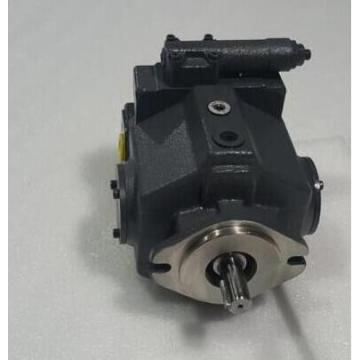 KAWASAKI K3V63DT PISTONS
KAWASAKI K3V63DT PISTONS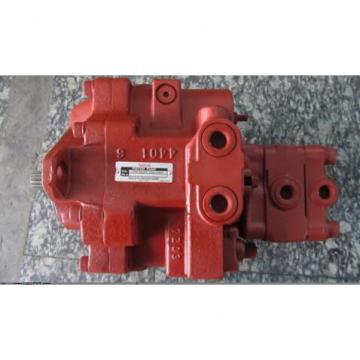 KAWASAKI K3V112DT CYLINDER BLOCK AND R.H. PLATE
KAWASAKI K3V112DT CYLINDER BLOCK AND R.H. PLATE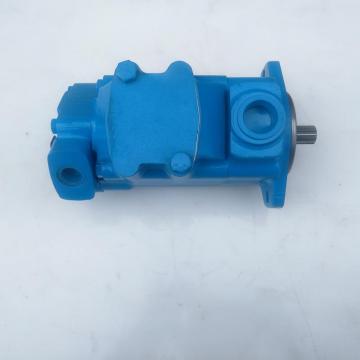 KAWASAKI K3V140DT SHOE PLATE FOR HYDRAULIC OR HYDROSTATIC EXCAVATOR
KAWASAKI K3V140DT SHOE PLATE FOR HYDRAULIC OR HYDROSTATIC EXCAVATOR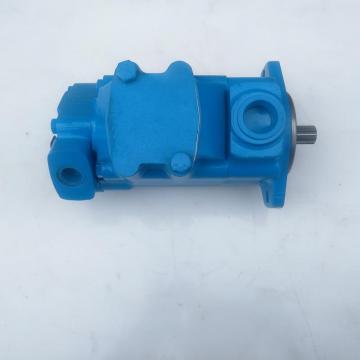 KAWASAKI K3V140DT RIGHT HAND ROTATING GROUP FOR HYDRAULIC EXCAVATOR
KAWASAKI K3V140DT RIGHT HAND ROTATING GROUP FOR HYDRAULIC EXCAVATOR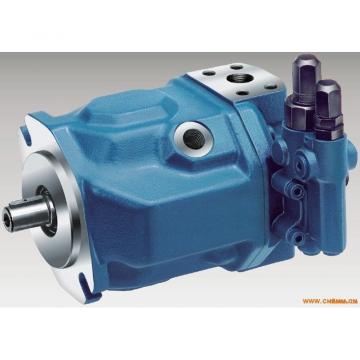 KAWASAKI K3V63DT CYLINDER BLOCK AND L.H. PLATE FOR HYDRAULIC EXCAVATOR
KAWASAKI K3V63DT CYLINDER BLOCK AND L.H. PLATE FOR HYDRAULIC EXCAVATOR